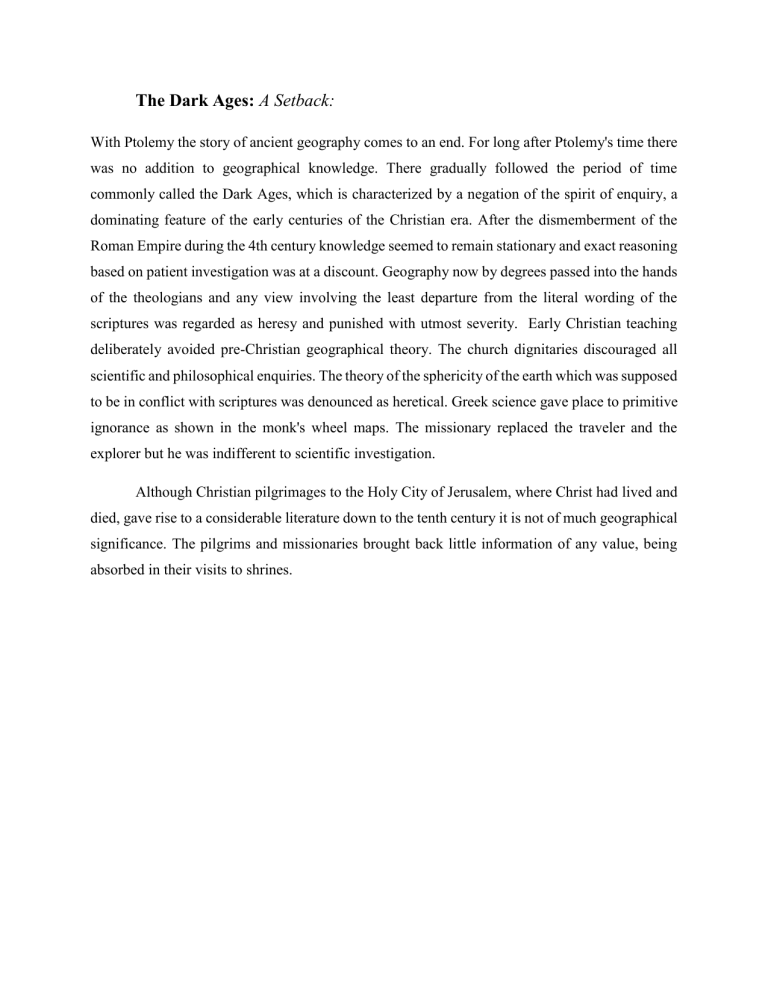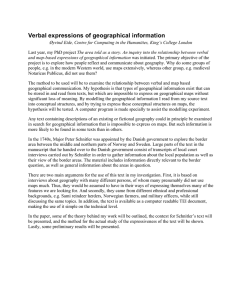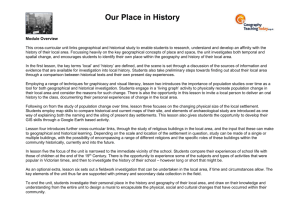
The Dark Ages: A Setback: With Ptolemy the story of ancient geography comes to an end. For long after Ptolemy's time there was no addition to geographical knowledge. There gradually followed the period of time commonly called the Dark Ages, which is characterized by a negation of the spirit of enquiry, a dominating feature of the early centuries of the Christian era. After the dismemberment of the Roman Empire during the 4th century knowledge seemed to remain stationary and exact reasoning based on patient investigation was at a discount. Geography now by degrees passed into the hands of the theologians and any view involving the least departure from the literal wording of the scriptures was regarded as heresy and punished with utmost severity. Early Christian teaching deliberately avoided pre-Christian geographical theory. The church dignitaries discouraged all scientific and philosophical enquiries. The theory of the sphericity of the earth which was supposed to be in conflict with scriptures was denounced as heretical. Greek science gave place to primitive ignorance as shown in the monk's wheel maps. The missionary replaced the traveler and the explorer but he was indifferent to scientific investigation. Although Christian pilgrimages to the Holy City of Jerusalem, where Christ had lived and died, gave rise to a considerable literature down to the tenth century it is not of much geographical significance. The pilgrims and missionaries brought back little information of any value, being absorbed in their visits to shrines.


